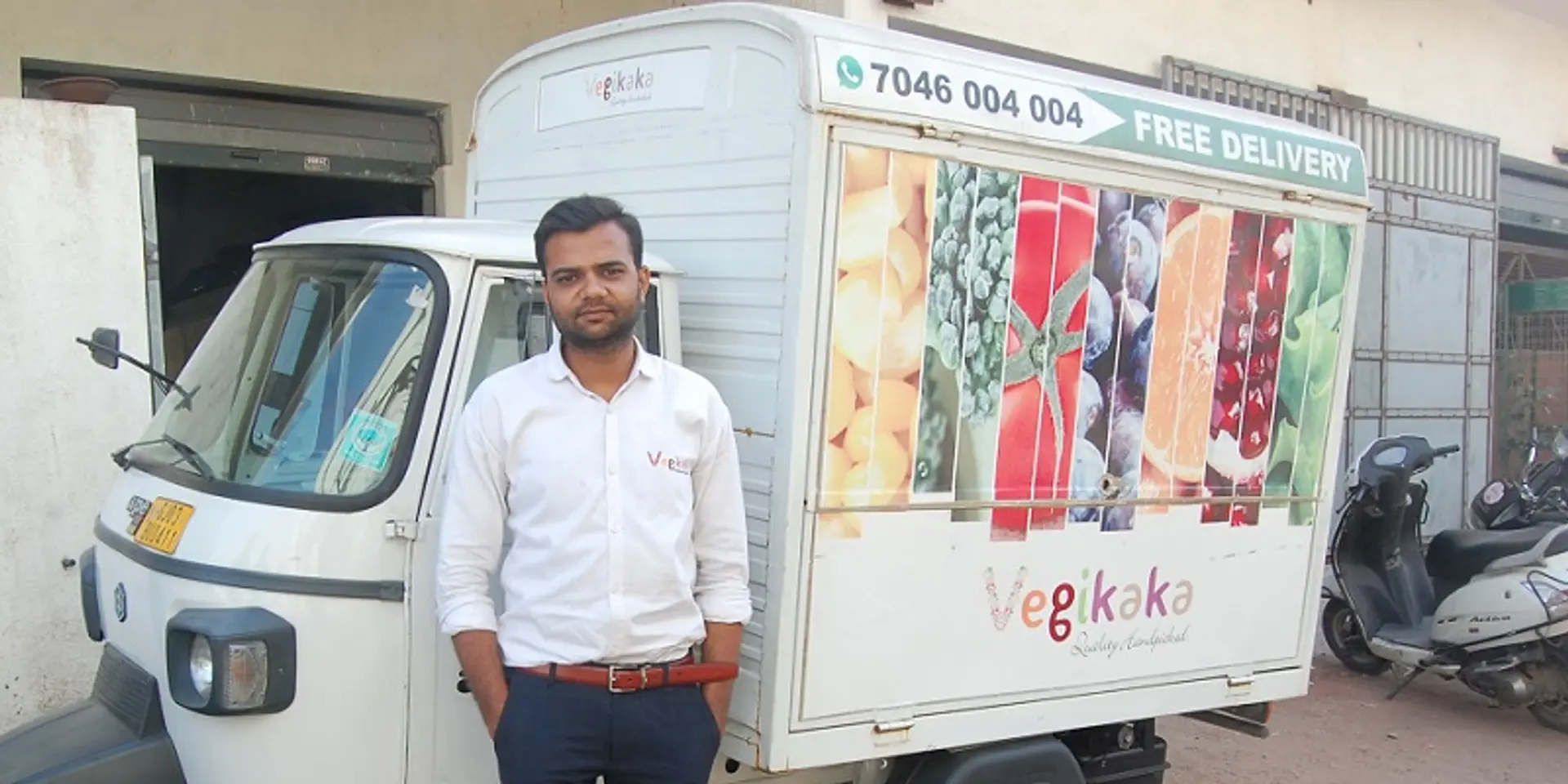Online is not the answer for Tier I, II cities of India: the story of Rajkot-based Vegikaka
Why a mobile van providing better services makes more sense than an app when it comes to grocery delivery in tier 1,2 cities of India right now
We’ve all privy to the promise of the online world and the startup ecosystem has been the biggest propagator of this hype. With a course correction coming in from 2016, the frenzied rush to go online has started to normalise and things are steering towards a more realistic direction. We felt this sentiment stronger during our visit to the villages and small cities of Gujarat (see whom we met in Porbandar and Vadodara). While there, we met Divyesh P of Vegikaka in Rajkot, who shunned the idea of online commerce being the cure-all in every segment and for every market.
“In cities like Rajkot, people are not used to buying vegetables online and prefer to see the quality they are buying and would like to handpick them,” says Divyesh. People here have time, unlike those in metros like Bengaluru, where many of us reside in a self-created bubble of dearth of time. This frenzy led to the creation of the on-demand hype. There are people who want this luxury and there is a need but it cannot be extrapolated to the rest of the country.
For Divyesh, the journey began in London, where he went to study and live for five years. Owing to a personal loss, Divyesh returned to his hometown in India. “I enjoyed the quality of fruits and vegetables available there. On returning, I found that it was difficult to find good quality vegetables and the supply chain was entirely broken,” says Divyesh. He then started Vegikaka, a startup that sells fresh and handpicked vegetables to customers through a customised vehicle.
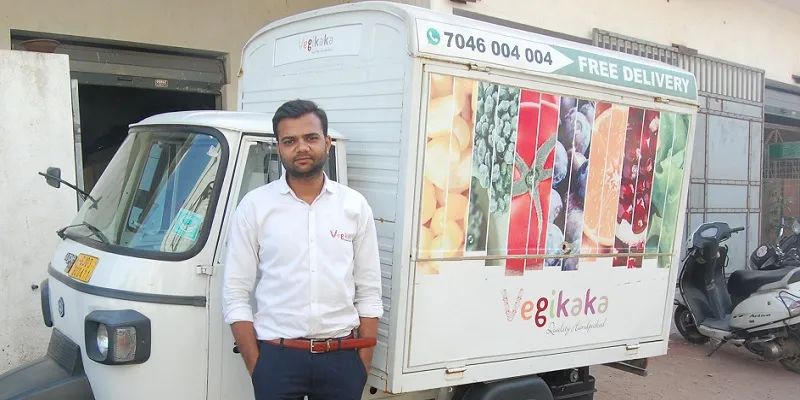
Vegikaka sources vegetables from select farmers and local mandi and carries over 35 varieties of vegetables. “All vegetables are sorted and graded at a storage house before being loaded onto our vehicle that serves customers on specific routes twice a week,” says Divesh.
Vegikaka does 450 transactions a week and the average ticket size is Rs 150 per customer. Divyesh adds, “We sometimes serve the same customers twice a week since our routes are fixed and we visit the same place twice. And these numbers represent only our three busiest working hours.” Vegikaka is bootstrapped with a small team of four people and is about to break even.
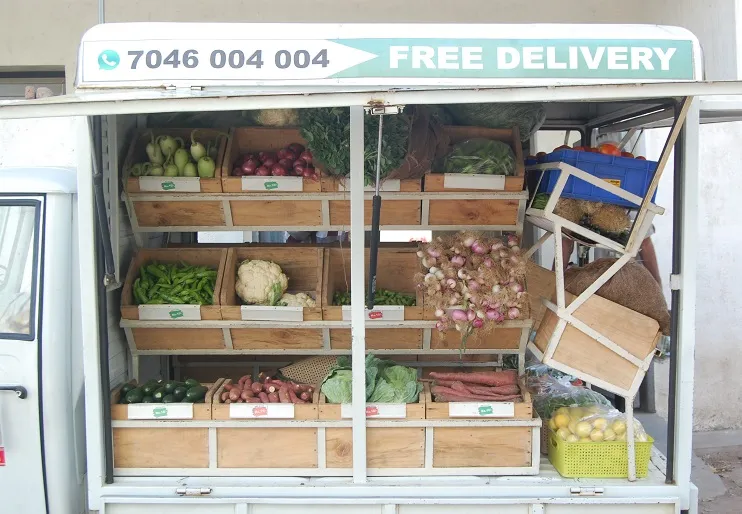
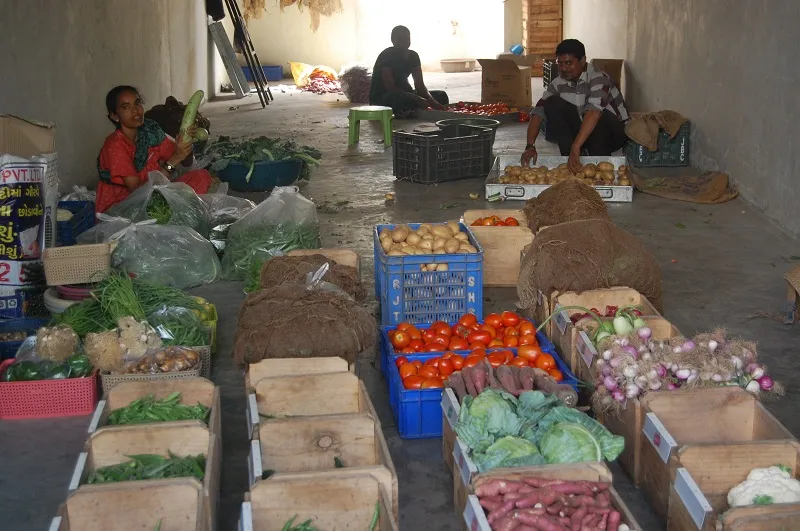
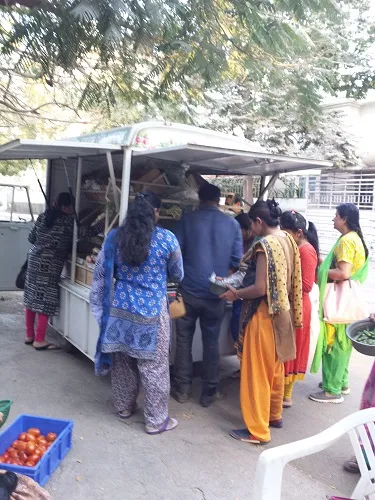
There have been attempts to provide online solutions for vegetable delivery but they have’t really worked out in many Tier I and II cities. Divyesh says, “Currently, there are a few players selling fruits and vegetables online but they haven't penetrated the market even though they have been in existence for a couple of years, while some others are shutting down their operations.”
In the coming months, the plan is to launch two more vehicles to serve in the areas they haven’t been able to. Launching in other cities like Ahmedabad and Surat is also on the cards. “Our future plan is to carry both fruits and vegetables but also have value-added products such as chopped vegetables in stored packaging. And carrying organic produce is also the part of future strategy but isn't our only focus,” he adds.
If one zooms out and looks at the larger startups, BigBasket comes to mind. It focusses on old-school business ethics and profitability first. And for companies like Vegikaka, the key lies in sorting out the supply chain and strengthening it before concentrating efforts on building apps and online platforms. A bottom-up approach to get the supply sorted and finding a market via offline channels that works will prove to be a solid platform that can later be supported by an online presence.
You can get in touch with Divyesh at [email protected] and share your experiences in the comments.


